To get the results you expect from your training, the post-workout period is crucial . Good nutrition and hydration after exercise makes a difference in building muscle mass. We tell you what the ideal post-workout meals are , focusing on the key nutrients that will boost muscle growth.

Why is post-workout food important?
After an intense workout, muscles need to recover and rebuild. Eating certain types of nutrients at this time will promote protein synthesis and speed recovery by reducing inflammation and repairing muscle tissue damaged during exercise.
The post-workout meal also influences the release of key hormones that play a fundamental role in the transport of necessary nutrients , helping to maintain an optimal physical and mental state, which can improve performance in future training sessions .
After physical exercise, muscles are broken down to obtain energy, inducing the body into a catabolic state. A balanced meal will help counteract this effect , preserving muscle mass and promoting an anabolic environment.
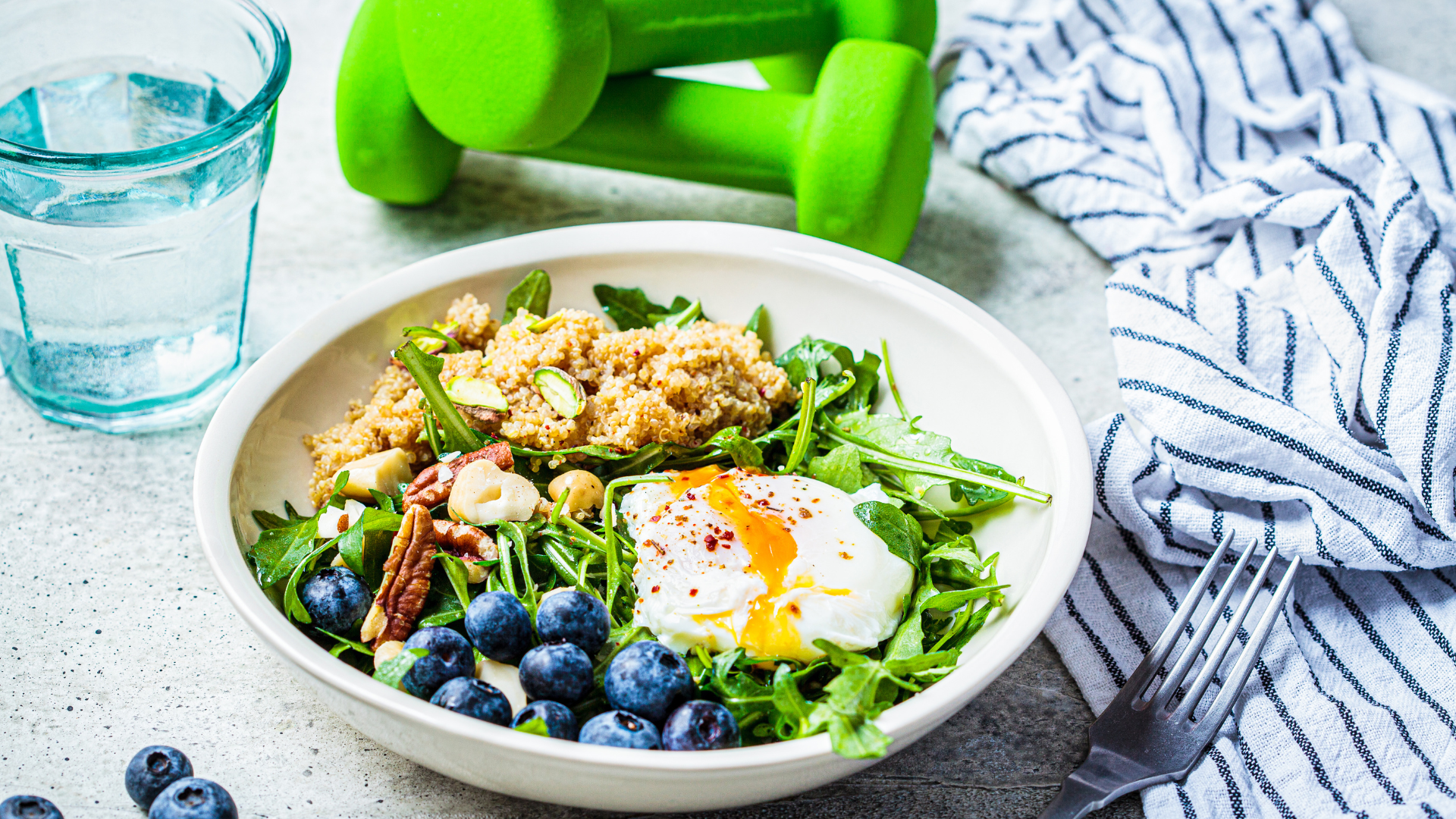
What to eat after training to gain muscle mass?
High quality proteins
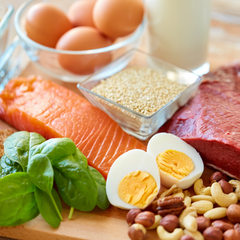
Protein is essential for maximizing protein synthesis, recovery and muscle growth. During exercise, especially resistance or strength training, muscle fibers experience tears. Post-workout protein intake provides essential amino acids necessary for the protein synthesis process, contributing to muscle development.
The "anabolic window" after exercise is a period in which the body is receptive to nutrient absorption, significantly enhancing the benefits of protein . Consuming quality protein facilitates rapid recovery by repairing damaged muscle tissues, reducing muscle discomfort and effectively preparing for future workouts .
In situations of high energy demand, such as intense training, protein intake preserves muscle mass , avoiding muscle catabolism. Including protein in the post-workout meal also promotes the feeling of satiety, helping to control appetite and maintain a balanced caloric intake.
Sources such as chicken, turkey, fish, eggs and low-fat dairy products are excellent options. Other protein sources such as legumes and vegetable proteins such as soy, could include slow-absorbing proteins, so preference should be given to those sources that are more easily absorbed for faster recovery after training. The specific amount of protein needed will depend on individual factors such as weight, training goals, and physical activity level.
Complex carbohydrates
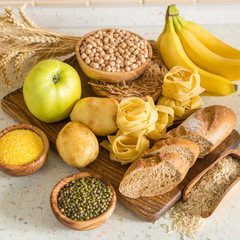
Consuming complex carbohydrates post-workout is key to replenishing glycogen stores, providing energy, and supporting muscle recovery. During exercise, glycogen levels decrease. Consuming complex carbohydrates after training helps replenish these reserves, ensuring enough energy for future sessions and daily activities. These carbohydrates release glucose gradually , maintaining stable energy levels, preventing fatigue and improving overall performance .
Additionally, complex carbohydrates stimulate the release of insulin , an anabolic hormone that facilitates the transport of nutrients into muscle cells. This promotes protein synthesis and muscle building . Consuming carbohydrates after exercise also helps reduce the body's need to use protein as an energy source, preserving muscle mass and protecting against catabolism .
In situations of intense exercise, which can increase levels of cortisol, the stress hormone, the intake of complex carbohydrates contributes to reducing these cortisol levels , creating a hormonal environment conducive to recovery and muscle growth.
Opt for options like sweet potatoes, brown rice, and oats for slow-release carbohydrates that will provide sustained energy.
healthy fats
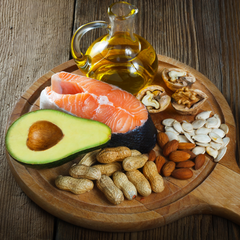
Consuming healthy fats after training can be beneficial for overall health. Although carbohydrates are crucial for replenishing glycogen stores, fats can provide longer-lasting energy , helping to maintain a constant energy level after exercise. Additionally, these fats facilitate the efficient absorption of fat-soluble vitamins (A, D, E, K), promoting general health and optimal functioning of the body.
Fats also play a crucial role in hormonal regulation, including those related to muscle growth and recovery, such as testosterone. Proper hormonal balance is essential for protein synthesis and muscle building. Likewise, healthy fats help provide a feeling of satiety , beneficial for those seeking to control appetite and maintain a balanced caloric intake.
It is essential to note that although healthy fats have benefits, maintaining a proper balance with other macronutrients such as proteins and carbohydrates is crucial to ensure a complete and effective recovery. The specific ratio will depend on individual goals, type of training and nutritional needs.
Including healthy fats is crucial for nutritional balance. Avocados, nuts, and olive oil are great options . These fats provide energy, aid in the absorption of vitamins, and promote proper hormonal balance.
Hydration

Post-workout hydration is crucial to restoring the body's water balance , especially after fluid loss during exercise. Adequate fluid replacement is essential to optimize recovery and maximize the benefits of physical exertion.
During exercise, the body eliminates fluids through sweat to regulate temperature, and lack of replacement can result in dehydration, affecting performance and recovery ability. Additionally, adequate hydration contributes to optimal muscle function , facilitating the transport of nutrients to muscle cells for repair and growth.
Regulating body temperature and eliminating toxins are other key functions of post-workout hydration.
To complement hydration, foods such as fruits with high water content (watermelon, melon, strawberries), fresh vegetables (cucumbers, celery), fruit and vegetable smoothies , broths, soups and coconut water are recommended options , since not only They provide fluids but also essential nutrients for recovery. It is important to clarify that although fruits with high water content are preferable for hydration, those that are high in fiber may not be the best option immediately after training in terms of rapid digestion.
The amount of fluid needed can vary depending on various factors, so it is important to remain aware of thirst and ensure adequate intake to maintain an optimal state of hydration.
What foods to avoid after training?
Clearly we should try to avoid consuming any food or meal that involves refined sugars, saturated fats or a high sodium content after a workout, as well as ultra-processed foods or sugary or energy drinks .
But there are other foods that, although at first glance they may seem healthy, we should also avoid because although they are nutritious in other circumstances, they are not ideal to consume right after a training session:
High fiber fruits
Although fruits are a healthy choice, those high in fiber, such as apples or pears, can be difficult to digest quickly after intense exercise.
Cruciferous vegetables
Vegetables such as broccoli, kale or cauliflower are rich in nutrients, but their high fiber and plant compounds content can cause stomach discomfort after training.
Slow absorption proteins
Foods with slow-absorbing proteins, such as red meat or legumes, may not be the best option immediately after training, since the body needs fast-absorbing proteins for muscle recovery.
Full-fat dairy products
Although dairy is a source of protein and calcium, full-fat dairy products can contain saturated fats that could slow nutrient absorption after exercise.
High fat foods
Avoid high-fat foods, such as pizza or hamburgers, as fat can slow the digestion and absorption of other nutrients necessary for recovery.
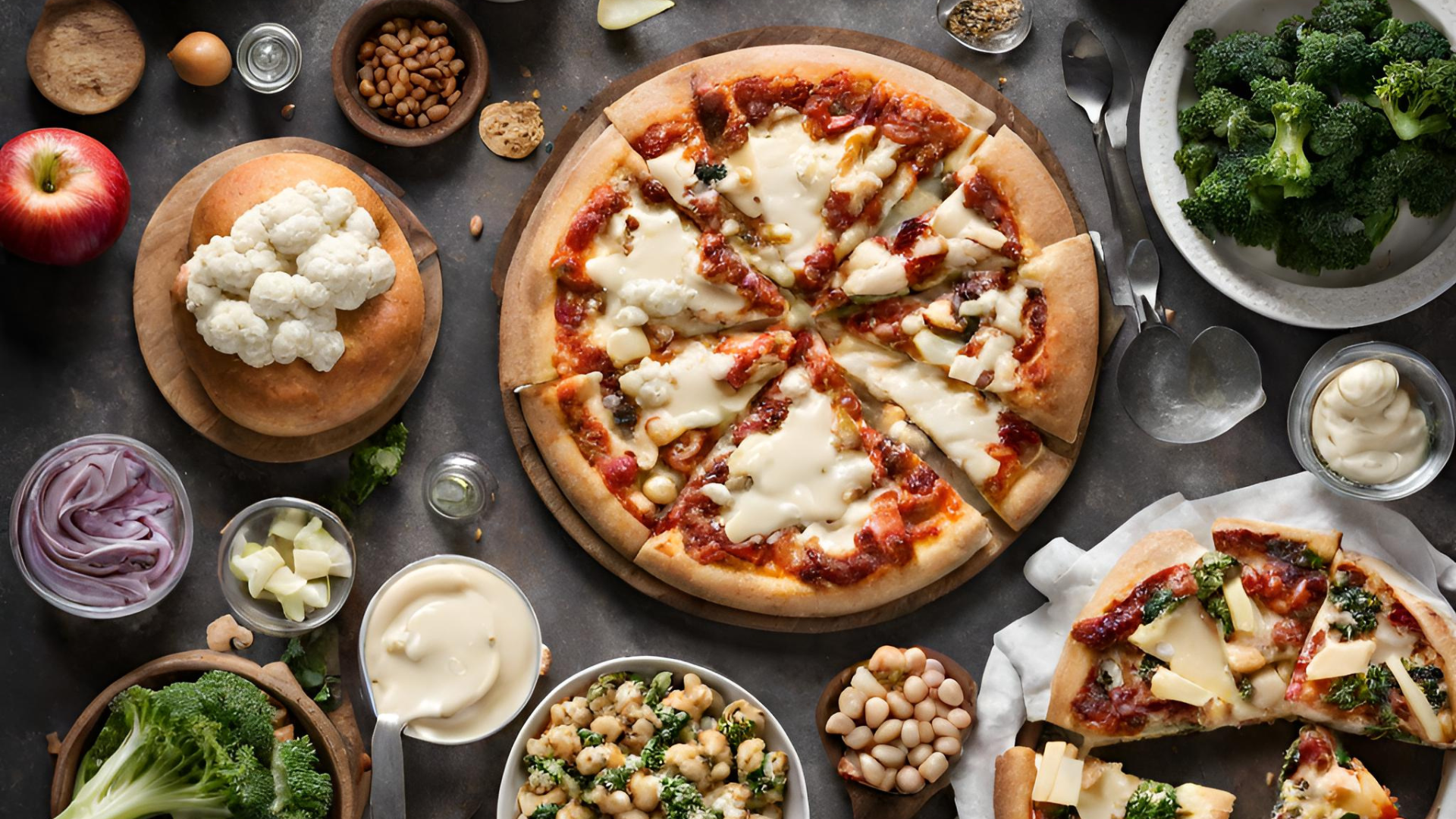
Post-workout food choices play a crucial role in your muscle-gain goals. Prioritize proteins, complex carbohydrates, healthy fats and adequate hydration to optimize recovery and growth, for example with a natural shake from our blog post " 5 recipes for homemade protein shakes to gain muscle mass " that includes everything you need . Avoid foods that could compromise your efforts in the gym. Remember, post-workout nutrition is as vital as the exercise itself.
With these recommendations, you will be on the right track to achieve your muscle gain goals. Make every post-workout meal an opportunity to boost your progress!

